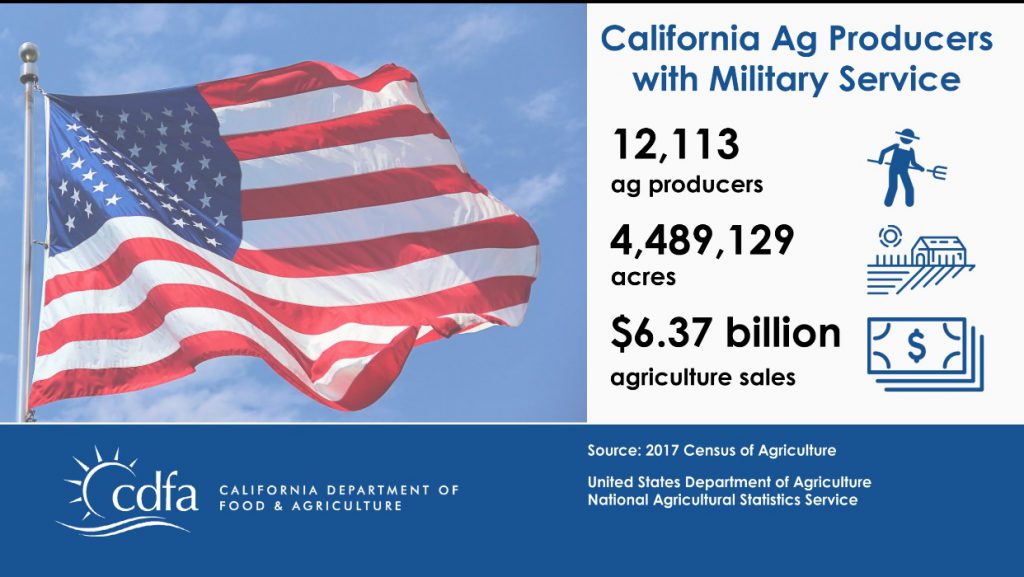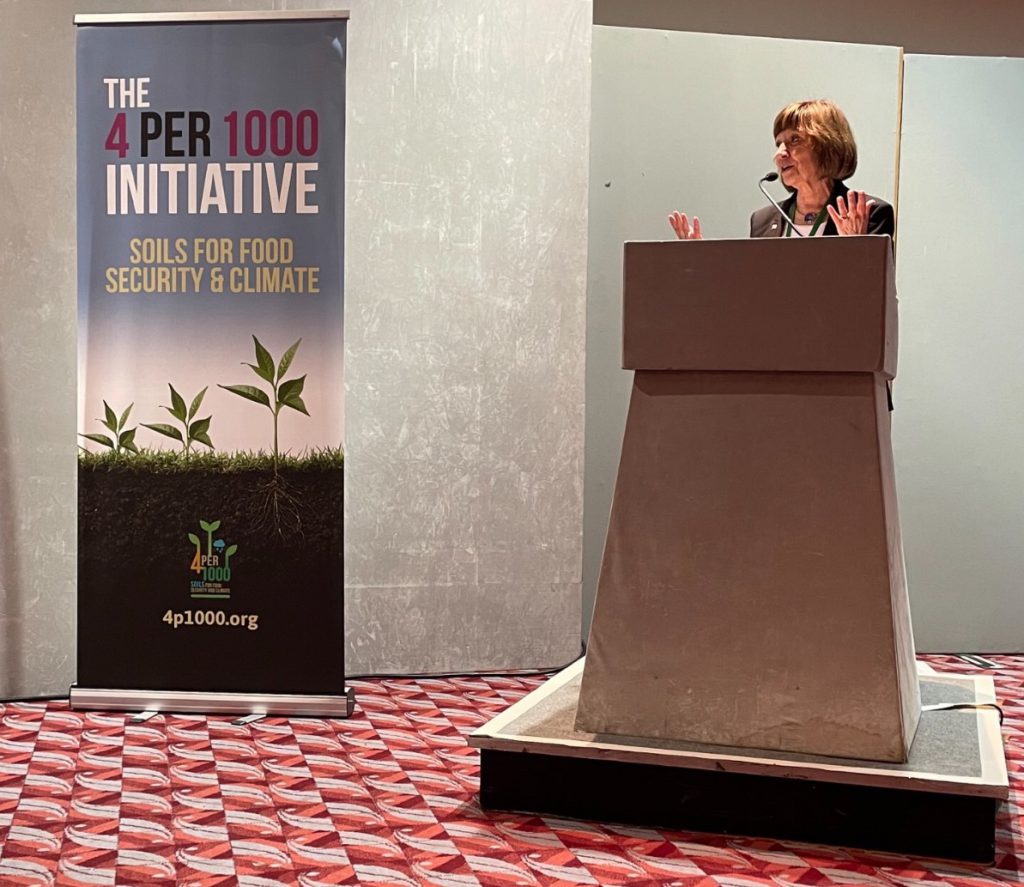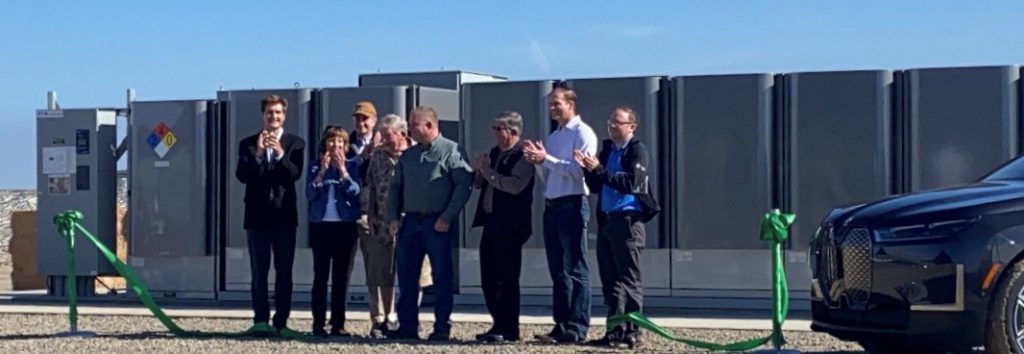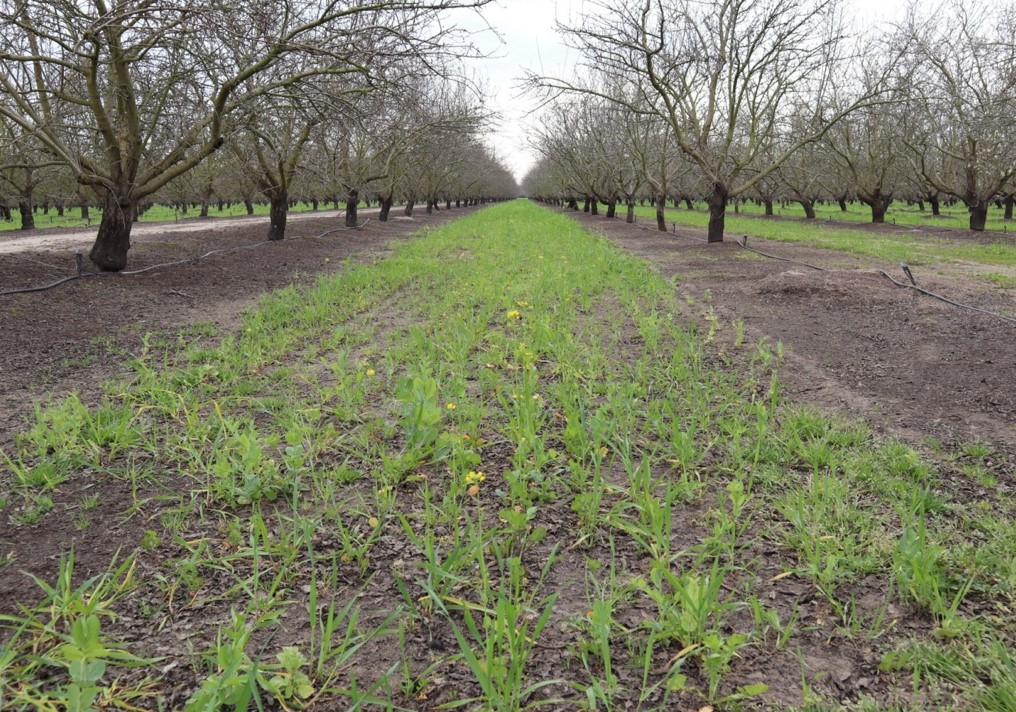From a USDA news release
The U.S. Department of Agriculture (USDA) announced is awarding $25 million to conservation partners across the country for 18 new projects under the Conservation Innovation Grants (CIG) On-Farm Conservation Innovation Trials program.
On-Farm Trials projects support widespread adoption and evaluation of innovative conservation approaches in partnership with agricultural producers. This year’s awarded projects increase the adoption of new approaches and technologies to help agricultural producers mitigate the effects of climate change, increase the resilience of their operations and boost soil health.
“Farmers, ranchers and forest landowners play a crucial role in charting the course towards a climate-smart future,” said Terry Cosby, Chief of USDA’s Natural Resources Conservation Service (NRCS). “On-Farm Trials enable partners to work with producers to test and adopt new climate-smart systems on their operations that support agricultural production and conserve natural resources, while also building climate resilience.”
Awarded Projects:
- Climate-smart Irrigation for Drought, Fertility, and Structural Resilience in Almond Systems (California) University of California, Davis will incentivize almond growers to adopt deep root irrigation, pressure compensated subsurface drip irrigation and Hybrid Pb.
- Decision Support System for Irrigation with Limited Water (California, Oregon) Irrigation for the Future will demonstrate an advanced decision support system designed to calculate the productivity of water and optimize the economics of irrigation management field-by-field.
- Regional LoRa Networks to Improve High Elevation Flood Irrigation Water Management (Colorado) Trout Unlimited will work within Colorado’s Gunnison River and Rio Grande basins, working with eight producers to deploy the use of Long-Range Low Power Area Networks (LoRa) to improve wild flood and furrow irrigation water management on irrigated mountain valleys above 5,500 feet elevation.
- Converting Wasteful, Flood-Irrigated Fields to Low-Cost, Gravity-Powered Drip Irrigation with Decision-Support Technology: A Water-Smart, Enhanced Crop Yield Agriculture Solution for Colorado River Indian Tribes and Other Producers (Arizona) N-Drip will work with approximately 20 producers of the Colorado River Indian Tribes to implement a drip irrigation system on flood irrigated fields.
- Beyond Yield: A Comprehensive Evaluation of Enhanced Efficiency Fertilizers for Reducing Nitrous Oxide Emissions and Ammonia Volatilization in Corn Systems (North Carolina) North Carolina State University will provide critical information on the efficacy of reducing nitrogen and using inhibitors on emissions and corn yield in the low soil carbon, hot and humid conditions of the southeast.
- Trialing Dietary Interventions to Mitigate Enteric Methane Emissions in Dairy Cattle (Michigan, Wisconsin) The Nature Conservancy will evaluate different dairy feed management strategies, including emerging feed additives. The goal of the project is to better inform greenhouse gas mitigation strategies for cattle, NRCS programs and the development of protocols for measuring enteric emissions.
- Regenerative Egg Farming Project (Kentucky) Handsome Brook Farm will support five beginning farmers in adopting climate-smart regenerative egg practices. This on-farm trial will establish on-farm manure management, storage and distribution systems designed to reduce GHG emissions, and reduce on-farm soil erosion and drastically reduce watershed pollution through pasture enhancements and investments in housing infrastructure.
- Stacking Climate-Smart Agriculture and Pollinator Conservation to Leverage Market-Based Incentives (California, Maine, Montana, Oregon, Washington) Xerces Society will demonstrate, evaluate, and quantify conservation practices designed to maximize the dual goals of climate-smart agriculture and pollinator conservation at the farm level
- Reimagining Modern Crop Fields: Delivering Economic, Environmental, and Societal Benefits through Increased Adoption of Precision Conservation (Iowa, Minnesota) Pheasants Forever will explore a financial assistance model that promotes the adoption of precision agriculture and precision conservation strategies and tools on a farm-wide scale to identify opportunities for conservation and inform decision-making.
- Inland Northwest Farmers Leading Our United Revolution in Soil Health (FLOURISH) (Washington, Idaho, Oregon) Palouse Conservation District will work with crop producers of the inland Pacific Northwest to demonstrate farming practices that build soil health and increase the resilience of dryland cropping systems. The overall goal of this project is to support widespread adoption of soil health management systems −specifically cover cropping, interseeding and cover crop-livestock integration.
- Addressing Barriers for Historically Underserved Producers in California’s San Joaquin Valley to Implement Combined Soil Health Practices through Participatory Planning and Evaluation on Diversified Farms (California) The Regents of the University of California will address barriers faced by small-scale historically underserved producers to adopt soil health practices and systems. The project will build flexibility for producers to adapt practices to the unique circumstances of their operations and to test the performance of various practice combinations.
- Bale Grazing: A Practical, Low-Cost, and Environmentally-Sound Management Strategy to Winter Beef Cattle (Kentucky, Missouri, North Carolina, New York, Virginia, West Virginia) The University of Kentucky Research Foundation will increase adoption of bale grazing to improve winter feed management for beef cattle farmers by demonstrating the practical, economic and ecological benefits of this strategy.
- Utah Soil Health Partnership: Utah Soil Health Network (Utah) Many of Utah’s dryland producers still practice summer fallow with frequent full width tillage through the fallow period. The Utah Association of Conservation Districts will increase the adoption of soil health practices in Utah with this on-farm trial focused on diverse farming systems.
- Grazing for Soil Health (Montana) Piikani Lodge Health Institute will work with Tribal Nations to support greater adoption and implementation of regenerative grazing practices on rangelands and irrigated pastures.
- Diversifying Appalachia’s Pastures to Improve Soil Health (West Virginia, Ohio, Pennsylvania) WVU Research Corporation will promote and evaluate pasture diversification through reseeding as an innovative conservation strategy.
- A Colorado Soil Health Program: Supporting Producers and Conservation Districts to Improve Drought Resilience and Water Utilization (Colorado) The Colorado Department of Agriculture will encourage the widespread adoption of soil health practices to achieve water quality, water conservation and on-farm economic benefits.
- Promoting Climate-Smart Agricultural Practices Among Underserved Small-Scale farmers in Arizona using Farmer Participatory Research (Arizona) This on-farm demonstration trial will promote climate-smart and soil health agricultural practices among small-scale farmers. The University of Arizona and collaborating farmers will use farmer participatory research to promote climate-smart agricultural and soil health management systems.
- From Farmers to Soil Health Managers – Participatory Design of On-Farm Trials to Stimulate Adoption of Innovative Conservation Techniques by Historically Underserved Farmers in the Puget Sound Region (Washington) Grow Food will engage historically underserved farmers to conduct trials of innovative Soil Health Management Systems techniques and demonstrate the benefits of adoption through environmental, social and economic evaluation of the on-farm trials.
For details on the awarded projects, visit the NRCS website.











